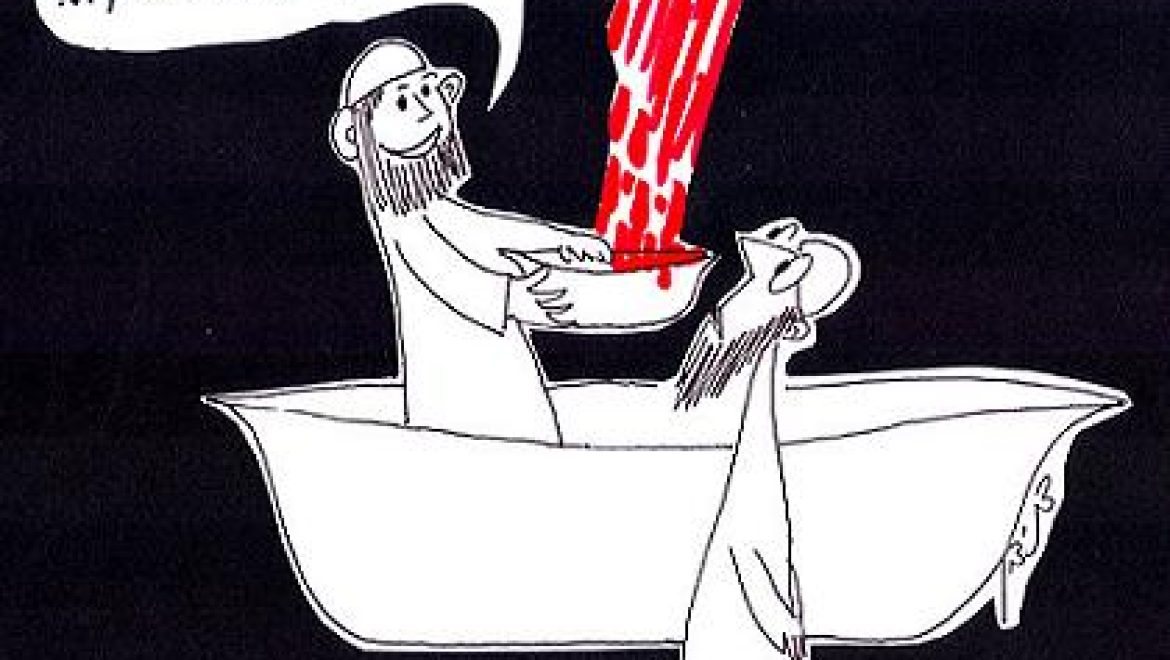
One of the ceremonies of atonement and sacrifice in the Holy Temple is gathering the blood of the slaughtered bull into a designated receptacle (a bowl). Some of this blood is sprinkled on the wall of the altar. The blood remaining in the bowl is spilled in a special area around the base of the altar. The sages ruled that the gathering of the bull’s blood must be accomplished directly from the bull’s severed veins to the bowl and that the bowl must contain all the blood which spurts from the slaughtered bull’s veins. If the blood falls to the ground outside of the bowl one may not scoop it into the bowl, and in this case the sacrifice cannot serve as atonement for the sinner.
Given these exacting demands, the Talmudic sages asked: what is the rule if the bull’s blood began to stream towards the bowl but before it reached the base the edged of the bowl fell and the blood dripped to the ground? In such a situation, is one permitted to gather the bull’s blood? What are the issues under debate? On one hand, blood which has not been gathered into the bowl may not be used, as we explained above, but on the other hand, since the stream of blood was flowing toward the bowl and something interrupted the stream so that it did not end up in the bowl — might the blood be considered as having been gathered into the bowl, so that it would be permitted to scoop it up and continue with the atonement ritual? (No decision was reached about this question.)
(Babylonian Talmud, Tractate Zevachim 25a-b)
